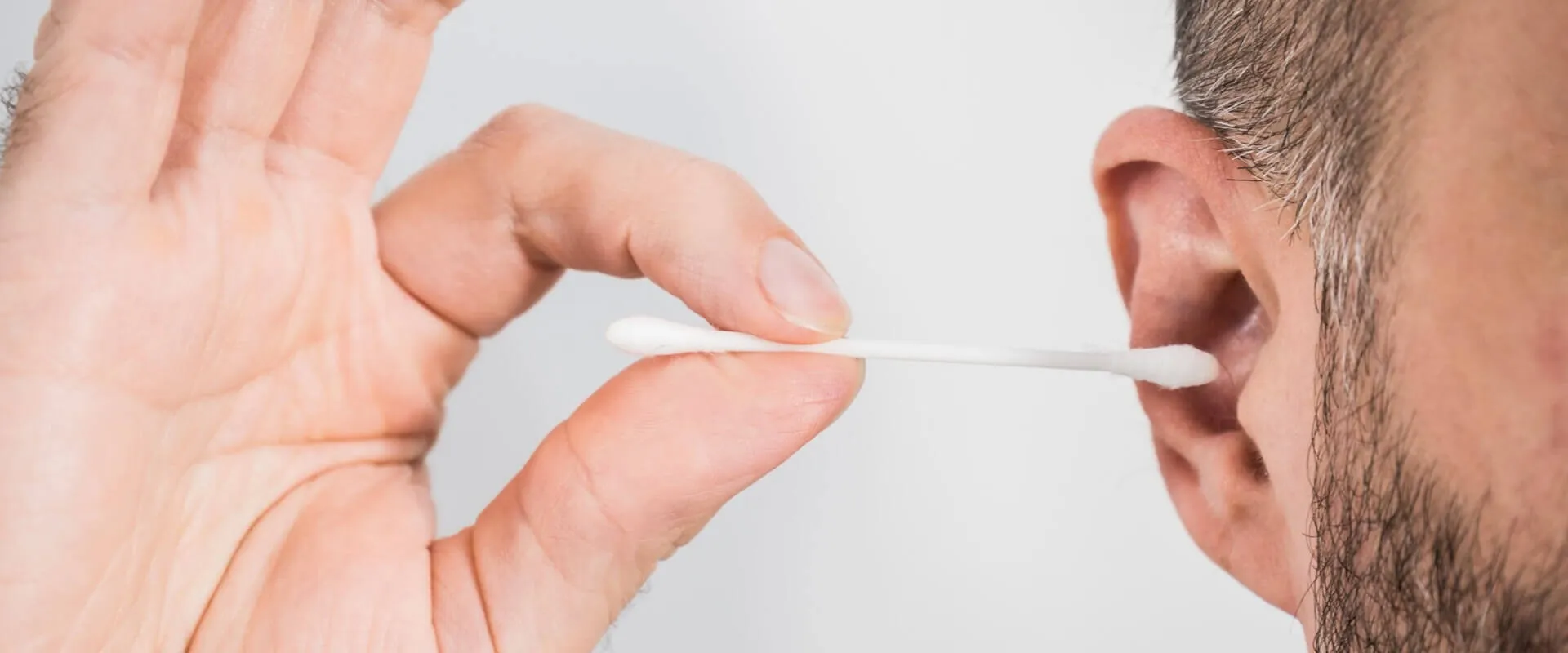Are cotton buds bad for your ears? Risks and facts

Are cotton buds bad for your ears? Risks and facts
3 minutes
Published: 7 May 2024
Reviewed : 20 January 2025
When it comes to personal hygiene, there are certain practices that have been ingrained in our routines for generations. One of these is the use of cotton buds (also known as Q-tips). They're pretty common to have around the house, but did you know they might not be the best choice for cleaning your ears? Let's talk about why.
What are Q-tips?
When we say "Q-tip," we're actually referring to a specific brand –like how we might call tissues "Kleenex." Here in the UK, they're often called cotton buds. While Q-tips/cotton buds are used for various tasks, including personal hygiene and cleaning, they can pose significant risks when used for ear cleaning. Contrary to popular belief, inserting these cotton buds into the ear canal can push earwax deeper, leading to potential complications.
The ear's natural cleaning mechanism
Before we explore the potential risks associated with cotton buds, it's crucial to understand the ear's natural cleaning mechanism. Our ears are designed to be self-cleaning organs. The outer part of the ear canal contains glands that produce cerumen, commonly known as earwax. Earwax plays a vital role in protecting the ear canal by trapping dust, dirt, and other foreign particles, preventing them from reaching the delicate eardrum.
What can go wrong when you insert cotton buds into your ear?
Contrary to popular belief, inserting cotton buds into the ear canal can do more harm than good. Here are some potential risks:
Pushing earwax deeper: when you insert a cotton bud into your ear, you're more likely to push the earwax deeper into the ear canal, instead of removing it. This can lead to a buildup of earwax, causing blockages and potential hearing problems.
Injury to the ear canal: this is a sensitive and delicate part of the ear, so inserting cotton buds too deeply or with excessive force can cause injury to the ear canal, resulting in pain, inflammation, or even puncturing the eardrum or hearing loss.
Risk of infection: cotton buds can introduce bacteria into the ear canal, increasing the risk of infection. Even if the cotton bud appears clean, it may still harbour harmful bacteria that can thrive in the warm, moist environment of the ear.
What's the best way to remove excess wax at home?
So, what's the best way to clean your ears safely? Rather than using Q-tips, healthcare professionals recommend a more gentle approach. Softening the earwax with a few drops of mineral oil or over-the-counter ear drops can help facilitate its removal. Or, gently irrigating the ear canal with warm water using a bulb syringe can help flush out excess earwax.
If you experience ear discomfort, or hearing loss, or suspect an earwax blockage, it’s important to get medical attention promptly. A healthcare professional, such as an audiologist or an ear, nose, and throat (ENT) specialist, can safely remove impacted earwax and address any underlying issues.
While the allure of using cotton buds for ear cleaning may be strong, it's essential to weigh the potential risks against the perceived benefits. Ultimately, the ear's natural self-cleaning mechanism is sufficient for maintaining ear hygiene in most cases. By adopting safer alternatives and getting professional help when needed, you can ensure the health and well-being of your ears for years to come. Remember, when it comes to ear care, gentleness is always the way to go.
Author
Emma JarvisReviewed by:
Content writer, Boots Hearingcare



